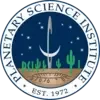PSI Personnel
Project Description
The proposed work consists of three components that build upon the significant research and public outreach accomplishments of PI Molaro’s career to support three over-arching goals: (G1) perform research relevant to the PSD, (G2) career growth through research and professional development, (G3) support the planetary science community through service and public outreach. These components are to:
1) Advance understanding of landscape evolution by investigating how regolith may be mobilized by thermally driven creep (G1-2). The potential significant of thermal creep has been recognized for decades, yet very little work has been done to investigate it. If active, it could cause regolith gardening, grain sorting, and crater erasure, which have significant implications for the evolution and age-dating of surfaces. A 1D numerical relation by Lee (1997) quantifies bulk soil movement from expansion during heating and downslope settling. Preliminary analysis indicates it may be highly significant on short geologic timescales on the Moon, however the simplicity of the model cannot capture how complex grain-grain interactions may influence the process. To this end, Molaro will investigate thermal creep by implementing a modeling technique called discrete element modeling (DEM), which can be used to simulate the mechanical and dynamical interaction of a collection of discrete particles. She will perform case studies to assess the efficacy of thermal creep on the Moon, Mars, and Bennu and explore what conditions are most favorable to its action. To broaden the impact of the work, she will collaborate with members of the HiRISE, LROC, InSight, and OSIRIS-REx teams to share the results, collect feedback on the direction of the research, and discuss implications for interpreting spacecraft observations and measuring this process.
2) Facilitate professional development through service and learning activities (G2, G3) such as volunteering for professional societies and attending SBAG meetings.
3) Jumpstart a new outreach effort (G3) using games as a platform to engage new communities with planetary science. Molaro will develop a series of educational game modules for players of the popular game Dungeons & Dragons (D&D), which is free to play and enjoyed by 40 million people worldwide. D&D is a tabletop role playing game, a style of game characterized by social interaction, collaborative storytelling, and problem-solving challenges overcome by a combination of role-play and dice-rolling mechanics. The foundation of an engaging player experience is to create a world that blends fantasy and realism. These modules will target that intersection by presenting players with real planetary science concepts which may have unique and compelling fantasy implications (e.g., what are werewolves like on a world with two moons?). These game modules are an innovative way to blend STEM learning into a widely used platform in a way that will enrich player experience while teaching in the process, allowing us to engage a large and diverse new audience in NASA’s work.

